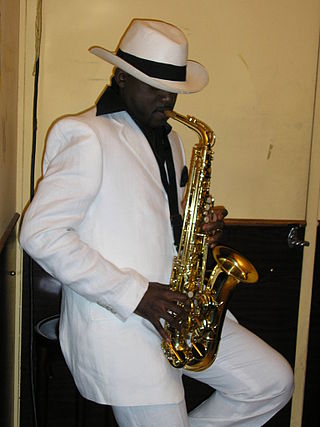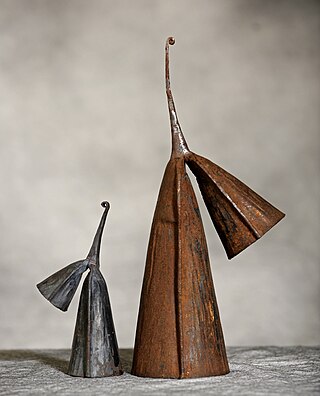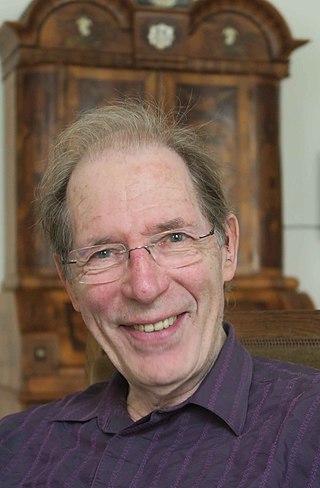The Second Viennese School was the group of composers that comprised Arnold Schoenberg and his pupils, particularly Alban Berg and Anton Webern, and close associates in early 20th-century Vienna. Their music was initially characterized by late-Romantic expanded tonality and later, a totally chromatic expressionism without firm tonal centre, often referred to as atonality; and later still, Schoenberg's serial twelve-tone technique. Adorno said that the twelve-tone method, when it had evolved into maturity, was a "veritable message in a bottle", addressed to an unknown and uncertain future. Though this common development took place, it neither followed a common time-line nor a cooperative path. Likewise, it was not a direct result of Schoenberg's teaching—which, as his various published textbooks demonstrate, was highly traditional and conservative. Schoenberg's textbooks also reveal that the Second Viennese School spawned not from the development of his serial method, but rather from the influence of his creative example.
Given the vastness of the African continent, its music is diverse, with regions and nations having many distinct musical traditions. African music includes the genres amapiano, Jùjú, Fuji, Afrobeat, Highlife, Makossa, Kizomba, and others. The music and dance of the African diaspora, formed to varying degrees on African musical traditions, include American music like Dixieland jazz, blues, jazz, and many Caribbean genres, such as calypso and soca. Latin American music genres such as cumbia, conga, rumba, son cubano, salsa music, bomba, samba and zouk were founded on the music of enslaved Africans, and have in turn influenced African popular music.

Udo Jürgens was an Austrian composer and singer of popular music whose career spanned over 50 years. He won the Eurovision Song Contest 1966 for Austria, composed close to 1,000 songs, and sold over 100 million records. In 2007, he additionally obtained Swiss citizenship.

The Republic of the Congo is an African nation with close musical ties to its neighbor, the Democratic Republic of the Congo. The Democratic Republic of the Congo's homegrown pop music, soukous, is popular across the border, and musicians from both countries have fluidly travelled throughout the region playing similarly styled music, including Nino Malapet and Jean Serge Essous. Brazzaville had a major music scene until unrest in the late 1990s, and produced popular bands like Extra Musica and Bantous de la Capitale that played an integral role in the development of soukous and other styles of Congolese popular music. The Hip-Hop group "Bisso na Bisso" also hails from Congo-Brazzaville.

African dance refers to the various dance styles of Sub-Saharan Africa. These dances are closely connected with the traditional rhythms and music traditions of the region. Music and dancing is an integral part of many traditional African societies. Songs and dances facilitate teaching and promoting social values, celebrating special events and major life milestones, performing oral history and other recitations, and spiritual experiences. African dance utilizes the concepts of polyrhythm and total body articulation. African dances are a collective activity performed in large groups, with significant interaction between dancers and onlookers in the majority of styles.

Sidney Corbett is an American composer based in Germany.

Baganda music is a music culture developed by the people of Uganda with many features that distinguish African music from other world music traditions. Parts of this musical tradition have been extensively researched and well-documented, with textbooks documenting this research. Therefore, the culture is a useful illustration of general African music.

Markus Kupferblum is an Austrian theatre and opera director, playwright and clown. He founded the first Austrian Fringe Opera Company, Totales Theater, in Vienna and is an expert on commedia dell'arte and mask theatre.
Siegfried Palm was a German cellist who is known worldwide for his interpretations of contemporary music. Many 20th-century composers like Kagel, Ligeti, Xenakis, Penderecki and Zimmermann wrote music for him. He was also Rektor of the Hochschule für Musik Köln and Intendant of the Deutsche Oper Berlin.

Herbert Gantschacher is an Austrian director and producer and writer.

A bell pattern is a rhythmic pattern of striking a hand-held bell or other instrument of the idiophone family, to make it emit a sound at desired intervals. It is often a key pattern, in most cases it is a metal bell, such as an agogô, gankoqui, or cowbell, or a hollowed piece of wood, or wooden claves. In band music, bell patterns are also played on the metal shell of the timbales, and drum kit cymbals.
African blues is a genre of popular music, primarily from West Africa. The term may also reference a putative journey undertaken by traditional African music from its homeland to the United States and back. Some scholars and ethnomusicologists have speculated that the origins of the blues can be traced to the musical traditions of Africa, as retained by African-Americans during and after slavery. Even though the blues is a key component of American popular music, its rural, African-American origins are largely undocumented, and its stylistic links with African instrumental traditions are somewhat tenuous. One musical influence that can be traced back to African sources is that of the plantation work songs with their call-and-response format, and more especially the relatively free-form field hollers of the later sharecroppers, which seem to have been directly responsible for the characteristic vocal style of the blues.

Daniel Hensel is a German composer, VJ, musicologist and music theorist. He is known as a composer of expressive works of all musical genre's whose works can be dedicated to ″a thread of a tradition leading from Schubert via Mahler to Hensel's teacher Schedl in presence.[...]“ His style contains all kinds of material, such as traditional tonal or harmonic as well as noise and electronic material. His works are published by Musikverlag Doblinger in Vienna.

Reinhard Febel is a German composer, notable for his operas. He is also a music theorist and a university professor at the Hochschule für Musik, Theater und Medien Hannover and the Mozarteum.

Gerhard Rühm is an Austrian author, composer and visual artist.
Christian Elsner is a German tenor in opera and concert, and an academic voice teacher at the Hochschule für Musik Karlsruhe. He focused first on lied and oratorio, then entered the opera stage in roles such as Handel's Tabarco and Mozart's Pedrillo. From 2007, he also performed roles such as Wagner's Siegmund and at international opera houses and festivals.
Gerhard Schulz is an Austrian violinist, conductor and academic.

Erich Schenk was an Austrian musicologist and music historian.
Hartmut Krones is an Austrian musicologist.

Jürg Thomas Stenzl is a Swiss musicologist, and University professor.












